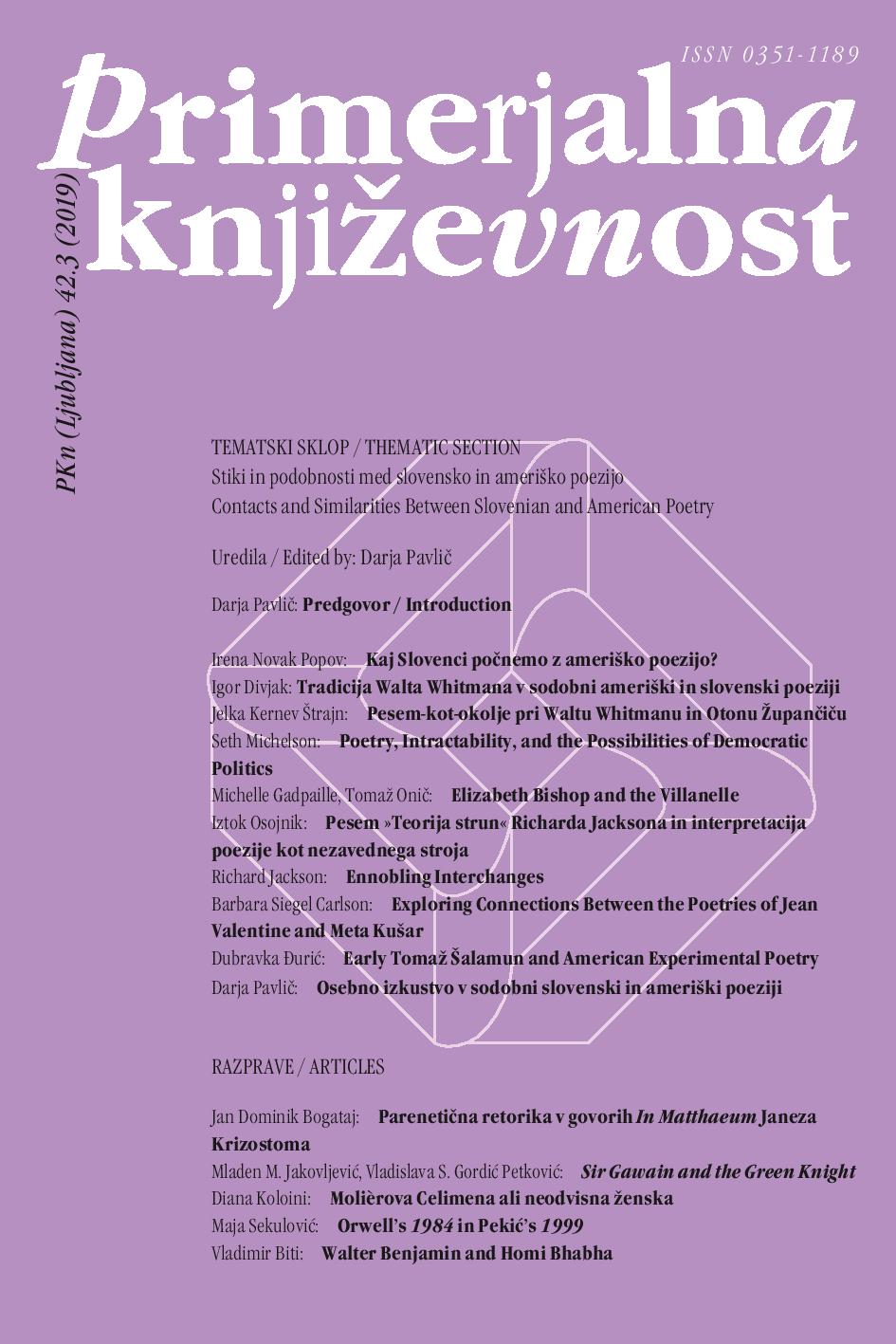Molière’s Célimène, or an Independent Woman
DOI:
https://doi.org/10.3986/pkn.v42.i3.13Keywords:
French drama, Molière, The Misanthrope, dramatic characters, women, Célimène, Alcest, feminist literary criticismAbstract
In Molière’s comedy The Misanthrope, Célimène represents an exceptional woman figure which is a novelty in the classical literature. A master of brilliant conversation, she is a witty and charming salon lady who takes part in the mondaine social life where she attracts numerous admirers. This freedom is made possible by her status of a widow without a patriarchal master, a status that is also problematic; it causes concerns particularly for Alcest, the protagonist who dominates the piece by his critical attitude toward the world. Despite his love for her his criticism is also aimed at Célimène who in his eyes embodies the vices of mondaine society. His assessment of Célimène’s conformism, coupled with her fickleness and falsity, was echoed by the majority of traditional commentaries that deemed her to be a slanderous coquette, hence a relatively banal and less important figure. Countering such simplifications, the paper tries to establish Célimène as a complex figure: Molière’s comedy, whose plot is largely centred on her, devotes her a lot of attention and offers ample possibilities for the deployment of her expression in different dimensions. The brilliant wit of her social portrayals displays her critical attitude to her contemporaries, various confrontations testify to her incisive relation to truth and to amour-propre as well as her lucid view of interpersonal and social relations. The paper explores the question to what extent Célimène, clearly rejecting subordination that Alcest threatens to impose, displays an independent spirit which equals his. Célimène is thus a figure who presents an essential parallel to Alcest and at the same time can appear as a paradoxical double of Molière himself. It is surprising that she has been largely neglected by the feminist scholarship.References
Biet, Christian. »Veuve et l’idéal du mari absolu: Célimène et Alceste«. Cahiers du Dix-Septième: An Interdisciplinary Journal 7.1 (1997). 215–226.
Brody, Jules. »Don Juan and Le Misanthrope, or the Esthetics of Individualism in Molière«. PMLA 84.3 (1969). 559–576.
Chupeau, Jacques. »Préface, notice, note«. Molière. Le Misanthrope. Pariz: Gallimard, 2000.
Dandrey, Patrick. »Célimène portraitiste: du salon mondain à l’atelier du Peintre«. Littératures classiques 3.58 (2005). 11–21.
Defaux, Gérard. Molière ou les Métamorphoses du comique: de la comédie morale au triomphe de la folie. Lexington: French Forum Publishers, 1980.
Donneau de Visé, Jean. »Lettre écrite sur la comédie du Misanthrope«. Molière. Oeuvres complètes I. Pariz: Gallimard, 2010.
Gossman, Lionel. Men and Masks. Baltimore: John Hopkins, 1963.
Guicharnaud, Jacques. Molière, une aventure théâtrale. Pariz: Gallimard, 1963.
Jasinski, René. Molière et le Misanthrope. Pariz: A. Colin, 1951.
Javoršek, Jože. Esej o Molièru. Ljubljana: Državna založba, 1974.
Lalande, Roxanne Decker. Intruders in the Play World: The Dynamics of Gender in Molière’s Comedies. London: Associated University Presses, 1996.
Lukan, Blaž. »Molièrova komedijska trilogija: sprehod po robu«. Molière. Tartuffe, Don Juan, Ljudomrznik. Prev. Oton Župančič, Aleš Berger in Josip Vidmar. Ljubljana: Mladinska knjiga, 1994.
Mesnard, Jean. »Le Misanthrope, mise en question de l’art de plaire«. Revue d’Histoire littéraire de la France 72.5–6 (1972). 863–889.
Molière. Oeuvres complètes. Urednika, avtorja spremne besede, komentarjev in opomb Georges Forestier in Claude Bourqui. Pariz: Gallimard (Bibliothèque de la Pléiade), 2010.
– – –. Ljudomrznik. Prev. Aleš Berger. Gledališki list SNG Drama Ljubljana 78.8 (2000). 49–72.
– – –. Kritika Šole za žene. Prev. Josip Vidmar. Molière. Dela. Ljubljana: DZS, 1972.
Norman, Larry F. The Public Mirror: Molière and the Social Commerce of Depiction. Chicago & London: The University of Chicago Press, 1999.
Orlando, Francesco. Due letture freudiane: Fedra e il Misantropo. Torino: Einaudi, 1971.
Riggs, Larry W. Molière and Modernity: Absent Mothers and Masculine Births. Charlottesville: Rookwood Press, 2005.
Rousseau, Jean-Jacques. »O Molièrovem Ljudomrzniku«. Prev. Simona Perpar Grilc. Gledališki list SNG Drama Ljubljana 78.8 (2000). 29–32.
Slapšak, Svetlana. »Celimena ali napredovanje mizoginije«. Gledališki list SNG Drama Ljubljana 78.8 (2000). 13–16.
Vernet, Max. Molière: côté jardin, côté cour. Pariz: Nizet, 1991.


